Commonwealth Games: Queen's Baton Relay 2002 memories
- Published
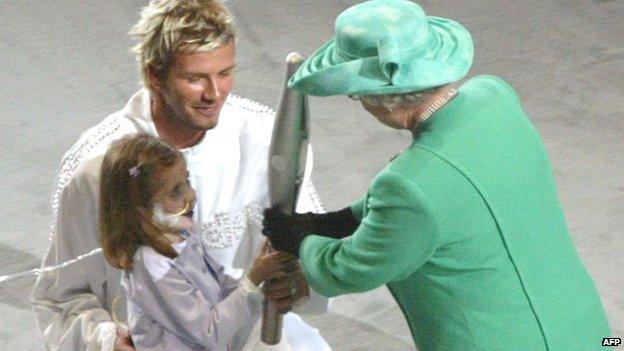
David Beckham and Kirsty Howard hand the Queen's Baton to the Queen.
The journey of the Queen's Baton Relay through the British Isles has brought back memories of the last time it took place before a UK Commonwealth Games.
In 2002, the Jubilee Relay was held before the Manchester Games.
The baton visited 23 nations and travelled over 63,000 miles (101,000km) before it reached the UK and was carried by 5,000 runners.
As this year's relay for the Glasgow Games arrives in Manchester, four people who took part in 2002 reflect on what it meant to be a baton-bearer.

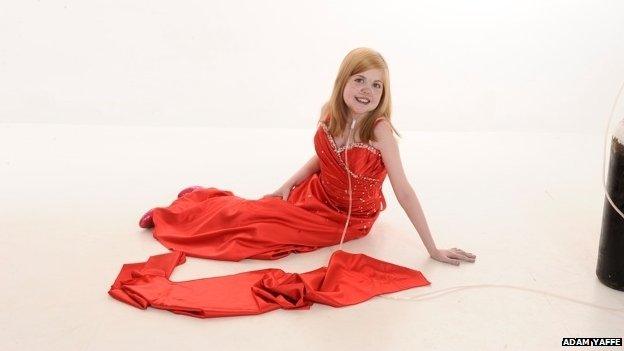
The image of Kirsty Howard and footballer David Beckham handing the baton to the Queen at Manchester's opening ceremony is one of the most memorable moments in Commonwealth Games history.
Kirsty was born in 1995 with her heart back to front. Aged four, she was told she had just weeks to live.
She defied the odds and, breathing with the aid of an oxygen tank, she joined Beckham on the pitch for an England World Cup qualifier against Greece in 2001.
Months later, pictures of the six-year-old and the Manchester United captain passing the baton to Her Majesty were beamed around the world.
"I didn't know that David was going to be there," she recalls.
"I was just standing there waiting and he came round the corner. He just gave me a hug and we went towards the Queen.
"The Queen smiled at me.
"The reaction from friends and family was amazing. I felt honoured to be there and everyone that I know was very proud.
"It still feels an honour to have been part of it."
After achieving 12 GCSEs and raising about £7m for charity, Kirsty is now studying childcare at Manchester College with hopes of one day becoming a teacher.

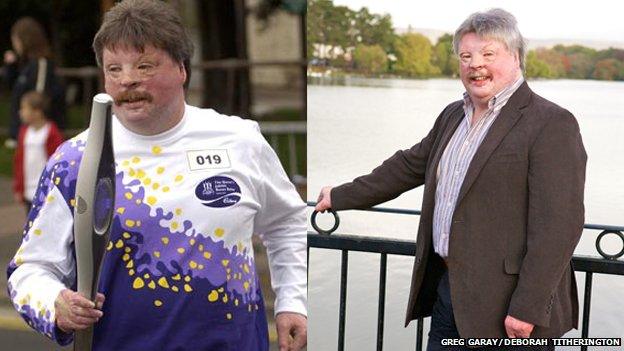
A Falklands War hero and charity fundraiser, Simon Weston is no stranger to public life. When he was asked to take part in the Queen's Baton Relay in 2002, he had no hesitation in saying yes as he "thought it would be fun".
Weston ran in his native Wales and his memories of the event were as much about the attire as the relay itself.
He said: "There was such a furore going on about the Manchester Games and I thought it would be lovely to take part in it.
"You don't get to keep the baton. You have to hand it on to somebody else. It is not like the Olympics where everyone gets a torch if you want to buy it," he added.
"There were a lot of people who were slightly nervous. They had never done anything in the public eye before.
"I was just treating it as a bit of fun, which it was. It was a good laugh," he said.
"The weirdest thing about it was the fact that I had to turn up wearing the most hideous tracksuit. It looked like I had been sitting next to an explosion in a paint factory. It provided my family and friends with great mirth."

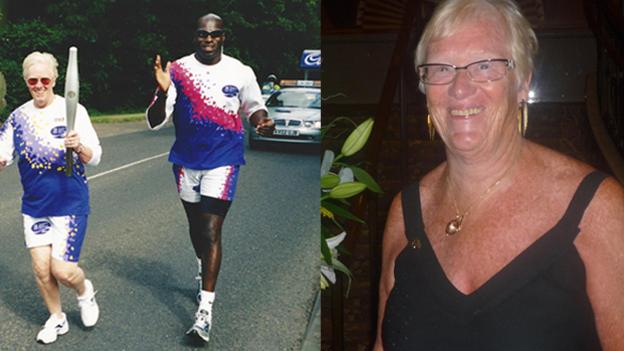
Many people who took part in the 2002 relay were supported by the communities in which they lived.
Elizabeth Heathcote was chosen by the Woman's Institute (WI) in Rutland after successfully recovering from a stroke 18 months earlier.
Now 67, she reflected: "We were supported by lots of WIs. They decided it was nice that I had fully recovered and they asked me if I would represent them.
"It was a great honour and over so quickly."
Elizabeth also has memories of the uniform worn by the baton-bearers.
"It was a very bright outfit. They could see us all coming," she joked.
"It was something very different, something that I will probably never do again. I have done a few things in the WI but I think that was one of the highlights.
"It is all part of life's sweet tapestry."

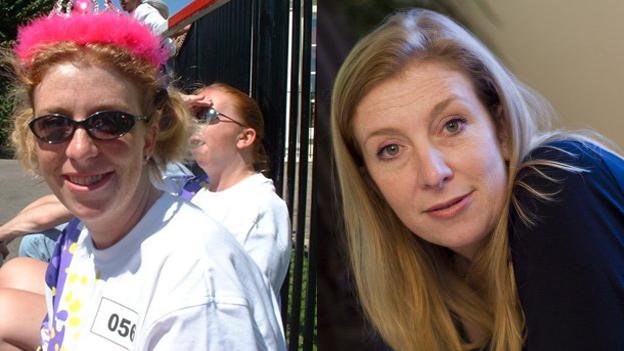
Claire Hewitt, who in 2002 was a 30-year-old living in the Tooting, south London, was nominated in secret by her neighbour Ian Fenn.
"I got a parcel through the post. It said: 'Congratulations, you are going to be a baton relay runner. Here is your outfit.'
"I had no idea what was going on at all."
Claire was put forward for welcoming Ian to the area.
She now lives with her family in Maidenhead, Berkshire, and co-owns a software development company.
Claire, like other runners, ran 500 yards (457m) with the 2002 baton. One of the distinctive features of that baton was an LED sensor that detected the pulse of the person who held it.
She added: "I am not one of life's sporty people. I remember thinking: 'God, can I even run that far.'
"I went out for a little test-run in a park in Windsor to check I could. It had a light inside that kept pulse with your heartbeat.
"It is obviously quite exciting and a bit surreal. I am sure there are people who are far worthier than me. It was one of life's experiences - one to tell the grandchildren about.
"I have kids now, and I think they would be interested to see my uniform in the loft."

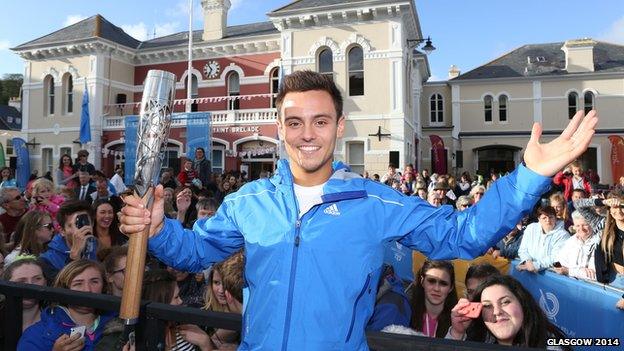
Tom Daley brought the baton back to the British Isles ahead of this year's Games in Glasgow
The Queen's Baton Relay has been the traditional curtain-raiser for the Commonwealth Games since 1958. Every baton is different, and this year's relay began last October in London.
It has travelled around the Commonwealth and has been held by thousands of children and athletes who will compete in Glasgow later this summer.
Since the baton arrived back on the British Isles earlier this month in the hands of Olympic medallist Tom Daley, it has toured the Channel Islands, Isle of Man, Northern Ireland and Wales.
It will travel around England from Saturday until 13 June before it spends 40 days in Scotland. Just like it did in 2002, it will then play a key role in the opening ceremony of the Games.
The BBC will be across the relay with rolling live video online every day when the baton is in Scotland.